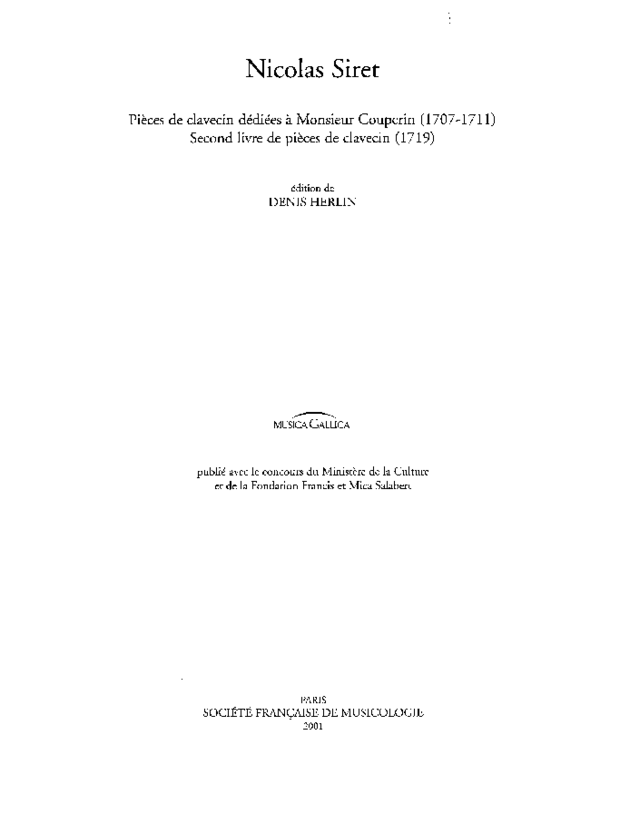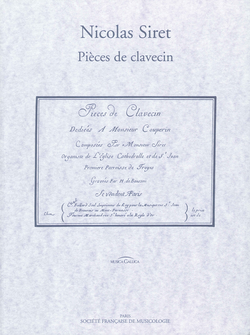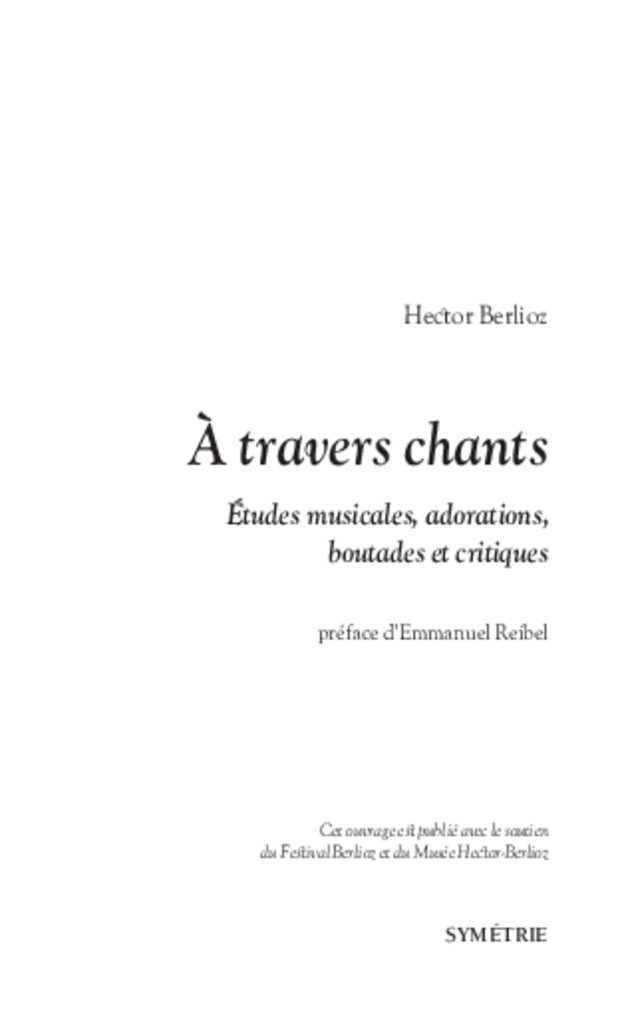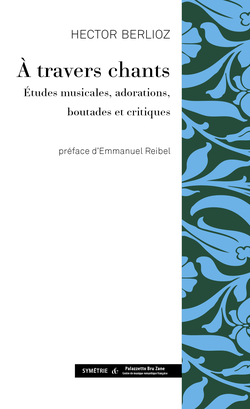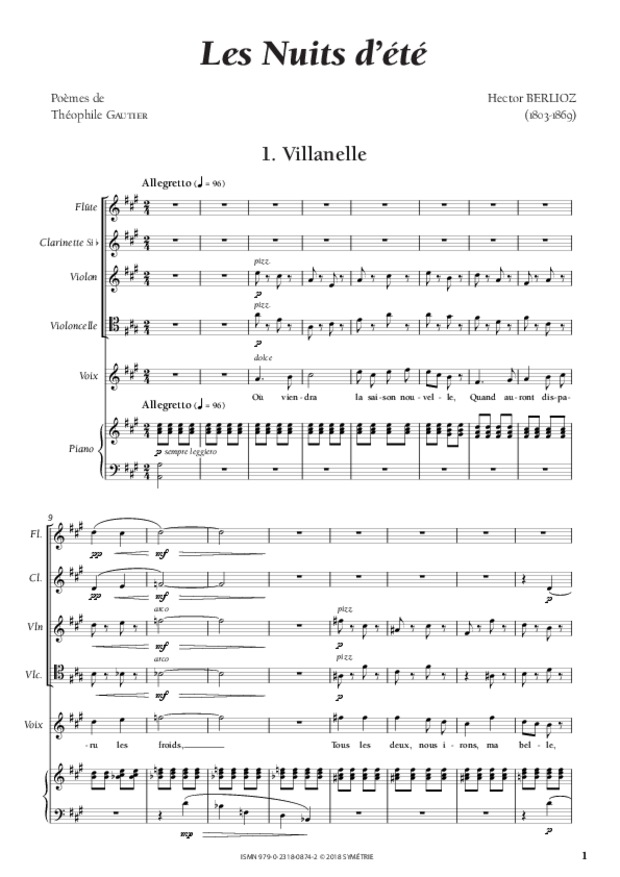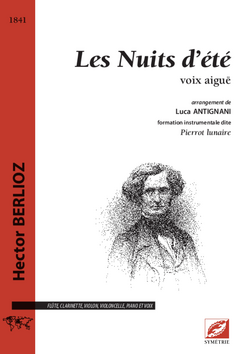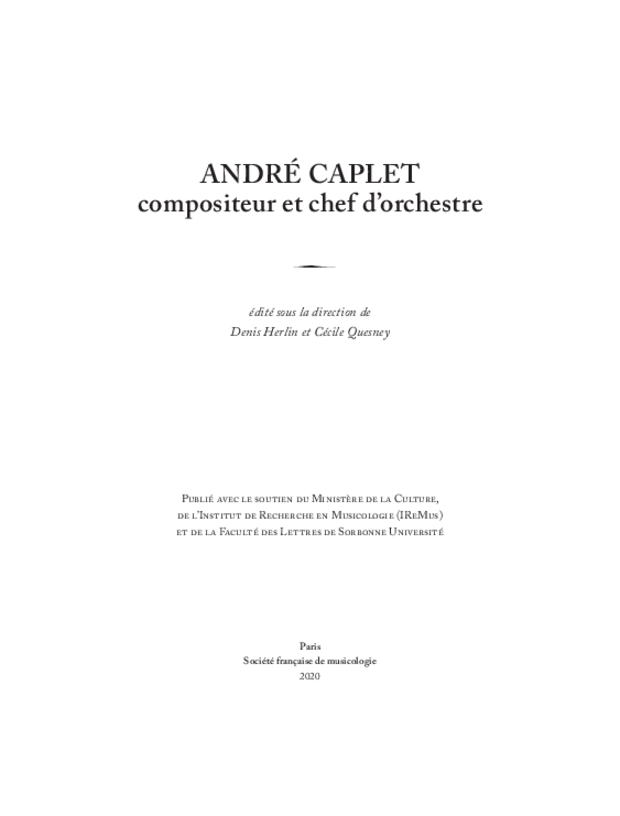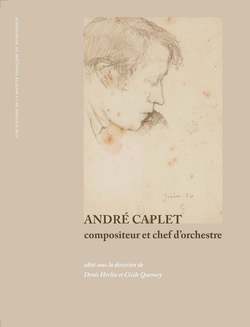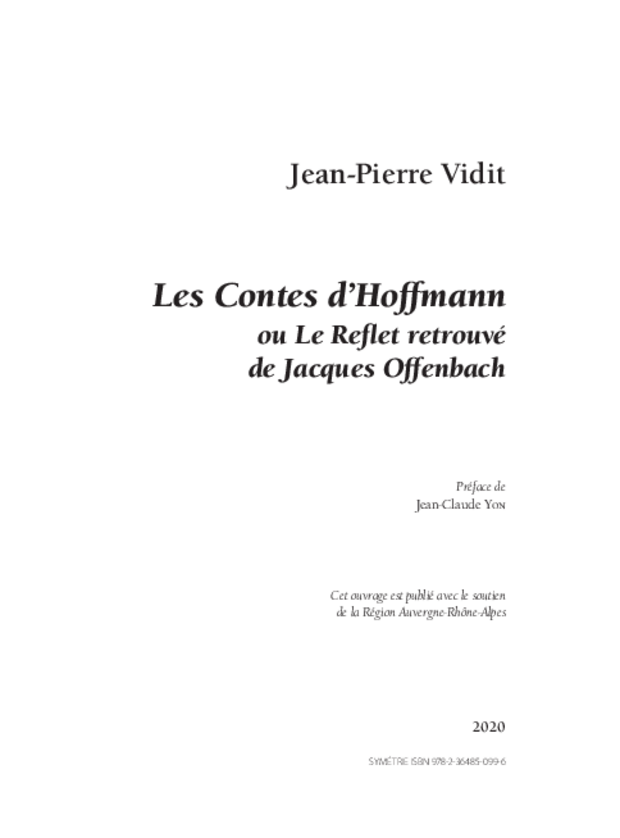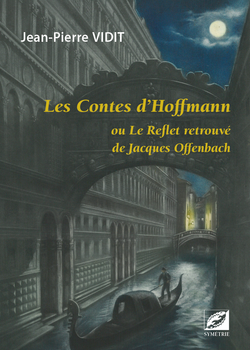This book brings together the papers presented at the international colloquium held at the Bibliothèque nationale de France from 13 to 15 November 2003, the last in a series of five colloquia whose themes were conceived as complementary.
The articles that make up the first part of this book help to shed light on Berlioz’s different attitudes towards the text, both musical and literary. A born writer and a great reader, Berlioz was first and foremost a man of the text who, in his correspondence, his feuilletons, his short stories, his treatise, and his memoirs, played a virtuoso role in the literary registers of autobiography, criticism, theory and fiction. The complaints of the critic condemned to drag the ball and chain of the feuilleton often lead today’s reader to note how pertinently Berlioz raises the question of the writer’s condition. Berlioz’s musical treatment of the text reveals a discernment that leads him to consider in a complex way the analogical relationship between the different states of a poetic text and their musical translation. The articles in the second part of this book are devoted to the various forms of contextualisation on which Berlioz’s creation depends. They help to dispel the all too persistent prejudice that Berlioz gave way to the impulses of a sensibility overtaken by a paroxysmal emotional life. Finally, this book also brings out what the presence – or absence – of Berlioz in the aesthetics of Mahler or Adorno’s thought means in the field of musical philosophy of the 20th century, the examination of the opinions of that other innovator Debussy, or the reasons for admiration of a musician even more radical in his creative options such as Varèse.
Press panorama
À la fois rationnel et sensible, voici le portrait d’un artiste toujours actuel.
Franck Mallet, Classica
Une contribution de première importance à la connaissance de Berlioz.
André Segond, Publications de l’opéra de Marseille
Un livre particulièrement intéressant qui permet d’aborder bien des aspects méconnus, notamment littéraires, de l’auteur de la Symphonie fantastique.
Patrice Imbaud, L’Éducation musicale
Cet ouvrage fixe un grand nombre de problématiques fort pertinentes, témoigne de la vitalité de la recherche berliozienne et contribue à la réhabilitation, déjà ancienne, de l’auteur des Troyens.
Stéphane Leteuré, nonfiction.fr
Berlioz apparaît ainsi à la lecture de ces nombreuses et riches contributions sous un jour nouveau.
Sommaire
-
Préface p. 9-12
-
Première partie : Textes p. 13-164
-
Le texte musical p. 13-47
-
Le Prix de Rome : Berlioz et ses rivaux p. 15-34
-
La New Berlioz Edition p. 35-40
Hugh Macdonald
-
Berlioz après 1848 : évolution ou révolution ? p. 41-47
-
Le texte littéraire p. 49-164
-
Berlioz et la création littéraire p. 51-58
Béatrice Didier
-
Berlioz et les cantates du Prix de Rome p. 59-70
-
« Le public n’a point d’imagination ». Genre dramatique, genre épique chez Meyerbeer et Berlioz p. 71-80
-
Berlioz et Offenbach dramaturges p. 81-90
-
L’art du portrait chez Berlioz ou contribution à l’histoire des chanteurs de l’opéra p. 91-100
-
Berlioz et l’éternel féminin p. 101-118
Katherine Kolb
-
Présences rythmiques de Berlioz écrivain p. 119-132
Éric Bordas
-
La Captive aux origines de la mélodie française ? p. 133-150
-
L’analogie poétique : l’exemple de Tristia p. 151-164
-
Deuxième partie : Contextes p. 165-262
-
L’imagination scientifique de Berlioz p. 167-181
-
Berlioz et l’esthétique de la musique sacrée en France au xixe siècle p. 181-190
Dominique Hausfater
-
Sur le chemin d’Euphonia : la « promotion » de la musique ancienne par Berlioz p. 191-208
-
Berlioz et Reicha : une relation ambiguë p. 209-220
-
Berlioz, Carpani et la question de l’imitation en musique p. 221-240
Damien Colas
-
Berlioz en Hongrie p. 241-250
-
Béatrice et Bénédict : un cadre classique pour l’imaginaire berliozien p. 251-262
-
Trosième partie : Berlioz et la création au xxe siècle p. 263-302
-
Berlioz, Mahler, Adorno p. 265-280
Jean-Pierre Bartoli
-
Berlioz vu par Debussy p. 281-294
-
Edgard Varèse : héritier de Berlioz au xxe siècle p. 295-302
-
Conclusion p. 303-308
David Cairns
-
Abréviations bibliographiques p. 309-310
-
Index des œuvres de Berlioz p. 311-314
-
Index des noms p. 315-323
